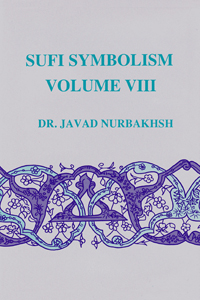



The sufis have introduced a vast number of terms into the lexicon of Islamic mysticism to describe their own interiorized vision and experience of the spiritual path to the Divine Being. Many of these terms concern exclusively nonrational levels of being and the manifestation of supranatural phenomenon. Although such terms are by no means the exclusive focus of the sufi mystical experience, such terminology is important enough to merit a separate study, which is the purpose of the present volume.
The various hierarchical gradations of mystical states (ahwal) and spiritual stations (maqamat) experienced by the sufis, as well as terms and poetic imagery relating to the idea of the 'power of breath' and the concept of the 'Eternal Now'(waqt) in the experience of 'time' constitute two large chapters (I, III) of the present work. Chapter II presents a comprehensive treasury of sufi terminology relating to miracles, charismatic powers, and the 'words of ecstasy' (shathiyat) generated by the experience of the intervention of the supranatural into normative spiritual life. The final chapter provides a glossary of terms summarizing the sufi conception of immanence and transcendence, and the sufis' understanding of the meaning of 'Praise', 'Thanksgiving', 'Eulogy', and 'Condemnation'
The sufis know that attention to time past and attachment to it or living in it means wasting the moment. Thinking of the future equally causes the moment to be lost. Thus, it is a matter of being a child of the moment, that is, being like a child who refuses to let go of the coat-tails of its father, of the moment. It means living in 'time present', treasuring it and wasting it, and occupying oneself with the best possible activity.
The Sufi is the child of the moment,
O brother; it is not the rule of the
way to reflect upon tomorrow.-Mathnawi-ye ma'nawi
 Sufi Symbolism I
Sufi Symbolism I
 Sufi Symbolism II
Sufi Symbolism II
 Sufi Symbolism III
Sufi Symbolism III
 Sufi Symbolism IV
Sufi Symbolism IV
 Sufi Symbolism IX
Sufi Symbolism IX
 Sufi Symbolism V
Sufi Symbolism V